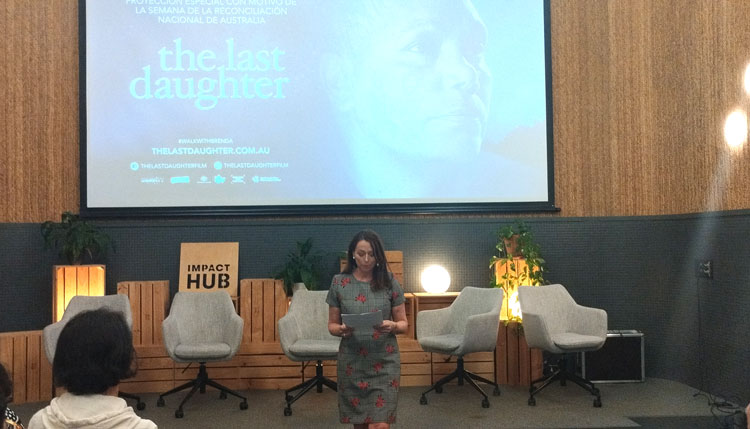Juan David Latorre
Last Wednesday, the Embassy of Australia invited a special screening of the documentary The Last Daughter, which it organized on the occasion of the month in which Australia celebrates the Week of National Reconciliation.
“First of all, began her speech the Australian ambassador, Ann Morris-Castico, I would like to thank Casa Asia for their collaboration in this initiative, an entity with which we work closely to bring the culture of our region to the Spanish public.”
“As every year at the beginning of June, the ambassador continued, this week in Australia two key moments in our history are commemorated: the 1967 referendum, which allowed for the inclusion of First Nations in the national census, and the landmark Supreme Court decision in the Mabo case in 1992, which recognized their rights to traditional lands. As the Ambassador of Australia, I am proud to be able to speak outside my country about the contributions of Aboriginal and Torres Strait Islander peoples to our society. Creating spaces like the one we are in today, learning their central role in history, is fundamental.”
Ann Morris-Castico stated that “the First Nations have lived in Australia for over 65,000 years. They are the oldest living culture in the world. His way of seeing life, his connection to the earth and his way of living in community are a deep source of wisdom. Unfortunately, for a long time their voices were not heard”.
“In Australia we understand reconciliation not as an event on the calendar, but as a path. A process that involves acknowledging the past, listening with respect and building relationships based on truth and justice. Often, that path begins with something as simple and powerful as hearing a true story. That is precisely what the documentary we are about to see today, The Last Daughter, does. This documentary premiered at the Adelaide Film Festival in 2022 and won the Audience Award for Best Documentary.”
This film tells the story of Brenda Matthews, an Australian Aboriginal woman, who embarks on a personal journey to reconnect with her identity and roots. Since then, the documentary has toured schools, universities and communities throughout Australia and “has fostered a dialogue that is gradually crossing borders, as today here in Spain,” concluded the Australian ambassador.
Before the start of the screening, a short video message from the protagonist herself, Brenda Matthews, who also wanted to be present, albeit virtually, was shared with the audience.
